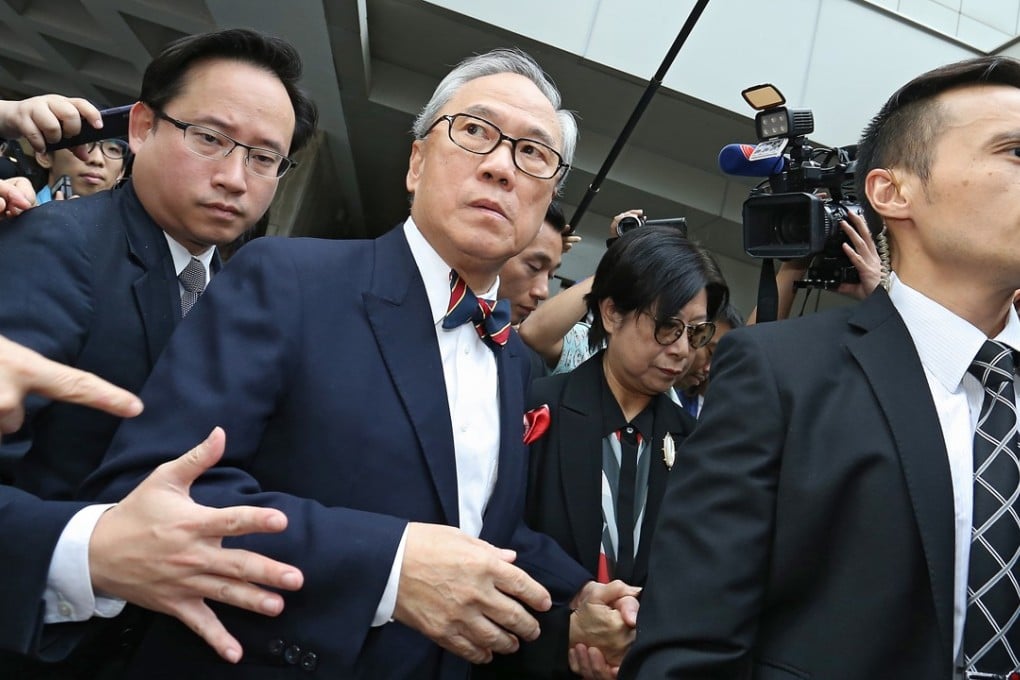He walked free, but ex-Hong Kong leader Donald Tsang’s bribery trials could cost him up to HK$29 million
Prosecutor says Tsang offered ‘no assistance to investigators whatsoever’, driving up costs of former top official’s earlier trial in February

Donald Tsang Yam-kuen may have to pay millions of dollars in court costs if prosecutors have their way, but they will not seek to put the former Hong Kong leader on trial for the third time on a bribery charge.
Despite deciding against a third trial, David Perry QC asked Tsang to pay a third of the legal costs incurred when he was convicted of misconduct in February. Perry said Tsang “had given no assistance whatsoever” to anti-graft investigators, which increased the cost of the case.
A lawyer estimated this would amount to HK$4 million (US$513,000), a third of HK$12 million he believed prosecutors spent on the two trials. Tsang’s own legal team, he said, would have charged him about HK$25 million.
Getting Donald Tsang back in the dock for second retrial will be hard for Hong Kong prosecutors, legal experts say
Mr Justice Andrew Chan Hing-wai granted the prosecutor’s application over the charge and gave the defence time to prepare a reply regarding legal costs.
Tsang left the court without comment.
Perry announced on Monday that it had been decided, after “careful and deliberate thought”, to leave the bribery charge against Tsang on file at the High Court. While he stopped short of saying they were dropping the case, that was the effect as it meant the prosecution was handing control over to the court.
Despite a change in strategy, prosecutors come up short again in former Hong Kong leader Donald Tsang’s bribery trial
However, the prosecutor did not completely rule out a retrial based on the bribery charge because Tsang was currently appealing against his earlier conviction.